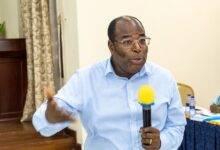The Diaspora in the Ghanaian context embraces people of African descent, who are actively and consistently tracing their roots back to the motherland.
This category of persons includes Ghanaians and our African brothers and sisters taken away from the Continent of Africa during the obnoxious slave trade to the Americas.
The Diaspora also embraces children classified as the Second and Third Generation and Youth Diaspora. Tourism, which is conceptualised as a “socio-cultural and economic experience and/or activity defined by people, people movement and people expenditure” (Kumaza, 2021) is the caravan that brings back the Diaspora to Ghana.
In an interview, tourism provides the platform to effectively engage the Diaspora as tourists and through their experiences and interests, decide to stay permanently in Ghana.
Over the years, the tourism sector has continued to promote diaspora relationships via tourism programmes internally and externally.
PANAFEST Emancipation, which is held in August every year, celebrates the African heritage and resilience globally to foster diaspora reconciliation, unity and healing while promoting the development of Africa.
Emancipation is cardinal to Panafest as it remembers the abolition of slavery and liberation of the African spirit. Critical to this festival is diaspora engagement since it inspires dialogue, collaboration and exchanges in development communication.
Another programme that pulls the Diaspora to the country is Ghana Tourism Month, which is organised in September to promote the Ghanaian destination to the Historical Diaspora.
The climax of Tourism Month is World Tourism Day organised globally on September 27 under the auspices of the United Nations World Tourism Organisation.
The U.S.A. and the Caribbean house a large number of the Ghanaian and Historical Diaspora, which the Ministry, working in conjunction with the Ghana Tourism Authority, continues to sensitise through the organisation of roadshows in these countries to influence the Diaspora to visit the motherland, especially Ghana and begin the process of re-integration.
Additionally, December in GH is a programme developed to promote Ghana as a December holiday season destination for the Ghanaian Diaspora and the global diaspora family.
This initiative, which features concerts, fashion shows, traditional cultural festivals, and much more across multiple regions of Ghana, has drawn many people in the Diaspora to the country and adjudged one of the successful programmes regarding tourist arrivals and expenditures for tourism growth and development.
Likewise, Black History Month in the United States of America celebrates the exploits of Black Americans in the United States’ development. The Ministry and Ghana Tourism Authority, in collaboration with Howard University, hosts a series of tourism, arts, and culture investments and events in Washington, D.C. to connect with the Diaspora.
After the monumental success of the Year of Return, Beyond the Return was developed for diaspora engagement and investment as well as scaling up the Diaspora outreach for re-integration into Ghanaian society.
This initiative, in the main, hinges on seven pillars, namely invest in Ghana, experience Ghana, give back to Ghana, brand Ghana, celebrate Ghana, promote Pan-Africanism, and learn about Ghana.
Dr Kumaza indicated the current tourism sector policy, which the Ministry is formulating and is in its advanced phase, has two key thematic areas and/or principles, namely migration and marketing and promotion through the optical lens of positioning Ghana as the preferred destination for the Diaspora, are devoted for furthering the course of the Diaspora engagement and re-integration.
The Ministry has also been working with the Ministry of Foreign Affairs and Regional Integration, the Diaspora Affairs in the Office of the President and GIZ to institutionalise migration and the Diaspora issues in Ghana’s policy considerations.
That tourism is the gateway for effective diaspora engagement and internalisation in Ghana cannot be over-emphasised.
The writer is the Acting Director, Policy Planning, Monitoring and Evaluation of the Ministry of Tourism, Arts and Culture.
BY Dr Alphonse Kumaza




